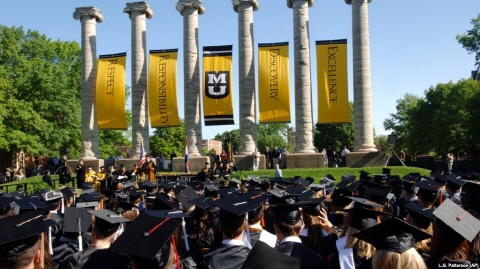
   |
[Headlines] (HL-과학/기술/교육) Tenured Positions at US Public Universities Are Under Attack
최고관리자 | 17-02-27 08:20

The idea of tenure has long been important to American higher education. In the 1700s, religious groups operated most colleges in the United States and, before that, Britain’s North American colonies. Often, college officials would remove employees who spoke about subjects that were in conflict with the school’s teachings. By the late 1800s, it became common for individuals who gave large amounts of money to a college to have powers similar to those officials. Then, at the start of the 20th century, the presidents of three private universities decided their professors needed more protection. The three universities were Harvard University, Columbia University and the University of Chicago. The presidents felt professors needed the freedom to explore difficult issues, which would, in turn, help better educate students. So they created a system to reduce the ability of donors to influence the removal of professors. This system is called tenure. After World War II, most U.S. colleges and universities established tenured teaching positions. A tenured position was meant to last as long as a professor chose to teach at the school that offered it. But during the 1950s and 1960s, some American professors were dismissed for expressing their political beliefs.
* tenure = (특히 대학 교수의) 종신 재직권; (특히 정계 요직의) 재임 기간; 재임/ official = (고위) 공무원[관리], 임원/ remove = (직장・직책에서) 쫓아[몰아]내다, 해고하다/ in conflict with ~ = ~와 충돌하다, 모순되다/ explore = 탐구[분석]하다; 답사[탐사/탐험]하다/ in turn = 결국[결과적으로]; 차례차례/ tenured = 종신 재직권을 가진/ dismiss = 해고하다/ political belief = 정치적 신념
Then in 1972, the U.S. Supreme Court decided a case involving tenure. The court ruled that a tenured position must be based on a written contract between a professor and a school. It also decided that any school wishing to end a professor’s tenure had to do so through a process similar to a trial. But some people call tenure a “guaranteed job for life” for professors, and, in some cases, a waste of money. One of tenure’s critics is Rick Brattin, a member of Missouri’s State House of Representatives. Last month, he proposed a measure that, in part, bans tenure for anyone who starts teaching at a public university in Missouri after January 1, 2018. Brattin says he proposed his bill because the costs of higher education have risen too high. He calls tenure at public universities “un-American” and an unnecessary cost to taxpayers. Tax money helps pay for operating costs at public universities, including professors’ wages. Brattin argues that once professors earn tenure, they often care less and less about how well they teach. "You cannot tell me that every tenured professor is absolutely doing everything to the fullest extent, that’s not even possible. So to have a system in place that protects that person with a guaranteed lifetime employment, it works against itself. Because then we have no ability to shed those who just shouldn’t have made the cut, but they slid in and now they have this protection."
* rule = (공식적으로) 결정[판결]을 내리다/ be based on ~ = ~에 근거[기반]를 두다/ written contract = 성문계약(서)/ through ~ = (장벽・단계・테스트를) 지나[거쳐/통과하여]/ similar to ~ = ~와 비슷한/ trial = 재판, 공판/ for life = 죽을 때까지(의); 평생[종신](의); 무기의/ critic = 비평가, 평론가/ measure = (특정 목적을 달성하기 위한) 조치[정책]/ in part = 부분적으로는; 어느 정도는/ operating cost = 운영비/ to the fullest = 최대한도로/ in place = 가동 중인; 가동할 준비가 되어 있는/ work against ~ = ~에 불리하게 되다; ~에 반대하다/ shed = (원하지 않는 것을) 없애다[버리다]/ make the cut = 최종 명단에 들다[빠지다]; 성공[실패]하다
   |




